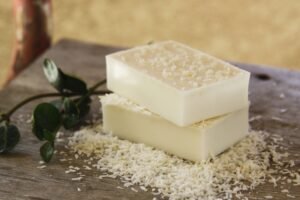 Foods sold as “healthy” in groceries should come with the quotation marks. This is because even though they are marketed and packaged as healthy they are far from it. Most of these foods are packed in sugar and high amounts of sodium. Here are examples of “healthy” foods and what you should buy instead.
Foods sold as “healthy” in groceries should come with the quotation marks. This is because even though they are marketed and packaged as healthy they are far from it. Most of these foods are packed in sugar and high amounts of sodium. Here are examples of “healthy” foods and what you should buy instead.
1. Frozen Yogurt
Frozen yogurt has been the alternative for ice cream. But even if you pick up the plain variety it still packs almost the same amount of sugar as the flavored ones. And this is before you add the Oreo bits and cheesecake bites.
For a healthier desert, pick up Greek yogurt and top it with fresh fruits, chocolate chips or a drizzle of honey at home.
2. Frozen Veggie Burgers
Most veggie burgers found on the shelves are highly processed and are made from soy or “textured vegetable protein” which comes from soy and wheat. According to studies, it’s hard to find an actual veggie burger made from veggies from supermarkets.
Choose veggie burgers that are not made from soy. Look for labels that contain beans, seeds and whole grains.
3. Green Juices
It’s nice to think that drinking bottled spinach juice is better than guzzling soda. But beware because refrigerated green juices like the above can still contain lots of sugar. These bottles can contain at least 50 grams of sugar mostly derived from fruit.
Water is still the best drink when you’re thirsty. It contains zero calories, is colorless and sugar free. Another great alternative is to juice your fruits or veggies at home.
4. Sushi
Sushi is high protein and low carb, making it a better alternative to fast food burgers. But eating sushi often can lead to mercury poisoning. Fish in sushi such as tuna, sword fish and sea bass are among the worst when it comes to mercury contamination.
You can still eat sushi but before doing so, check out the Defense Council’s guide to choosing low-mercury and sustainable fish and order your sushi accordingly.
5. Gluten Free Snacks
Unless you have Celiac disease, gluten free snacks is not always healthier compared to wheat based ones. Many manufacturers that use alternative flour to make gluten-free crackers, pretzels and baked goods contain just as many carbs as those made from wheat.
Read the label and stick to products made from 100% whole wheat flour or those made from almond flour, quinoa flour or chickpea flour (unless you have celiac disease).





